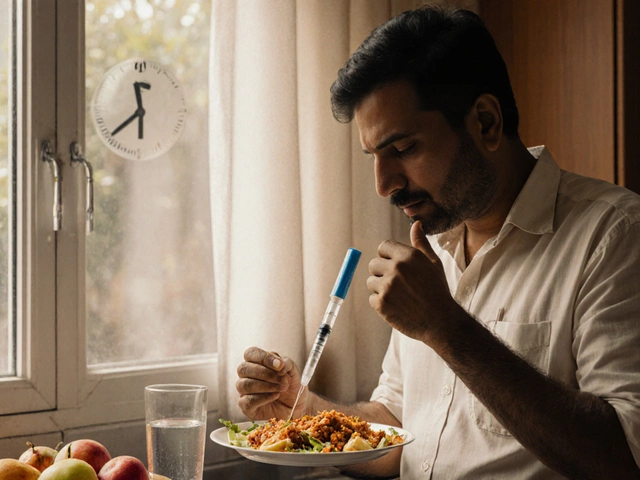You’ve just had a baby, and while your tiny human is still finding their voice, you might already be thinking of the next addition to your growing crew. Maybe it took years and medical miracles to bring your first baby home. Or maybe time isn’t exactly on your side and you’re hoping to have your kids close in age. So how soon can you try another round of IVF after giving birth? Is it even safe? That’s a question that gets asked in fertility clinics far more often than you’d guess—because life never waits around for perfect timing.
How Soon Is Too Soon? The Medical Timeline for IVF After Birth
Let’s get right into what everyone wants to know: how long should you wait between having a baby and starting IVF after birth? Doctors generally agree on one thing—the body needs time to recover. After all, pregnancy and childbirth are marathons for your mind and body. Recovery looks different for everyone, but there are certain medical benchmarks to hit before even thinking about fertility treatments again.
According to the American Society for Reproductive Medicine (ASRM), it’s wise to wait at least six months after a live birth before beginning another ART (Assisted Reproductive Technology) cycle like IVF. Why? Jumping into treatment too early increases the odds of complications like preterm labor, placental issues, or worsened postpartum health. In countries like the UK, the NHS often recommends a similar gap—again, around six months, sometimes up to a year if there were special circumstances like a C-section or major tearing.
Let's break down why this gap matters:
- Uterus healing: Your uterus needs to shrink back to pre-pregnancy size and fully heal. Even with a textbook recovery, this can take a good couple of months.
- Hormone stabilization: After delivery (and even more so if breastfeeding), your hormone levels are all over the place. IVF relies on precise hormonal control, so trying too soon after birth often means trouble getting things just right.
- Nutrient stores: Pregnancy drains your body of iron, calcium, and other key nutrients. If you rush into another pregnancy without restoring those reserves, you risk complications for you and your future baby.
Some studies have doubled down on the risks of quick-turnaround pregnancies. A 2018 study out of Canada found that women who conceived again within 6 months faced higher rates of low birth weight and premature delivery. That’s something no parent wants to risk. On top of that, doctors stress that your mental health matters just as much as your physical recovery. Sleep deprivation, postpartum mood swings, and the emotional rollercoaster of new parenting—all real reasons to pump the brakes on another IVF round too soon.
But it isn’t a one-size-fits-all answer. Individual health concerns play a huge role. If you had a complicated birth—maybe a big hemorrhage or an infection—that six-month window might stretch into a year. On the flip side, some women with advanced maternal age or fertility issues might want to get started as soon as safely possible. Only a thorough checkup can truly answer what works for your situation.

Factors You Can’t Ignore: Age, Breastfeeding, and Unique IVF Concerns
Let’s get into the details nobody tells you about when you start looking at timing IVF after birth. Everyone’s heard stories about friends who got pregnant two months after delivering. But IVF is a whole different ball game. There are a few big-picture factors to consider.
- Age is real: It’s no secret that fertility drops as you get older. If you’re over 35, the time you wait matters way more. Eggs don’t ‘pause’ their aging just because you’re recovering from pregnancy. But jumping in too soon can backfire if your body isn’t ready, so balancing urgency with safety is crucial. Most clinics will still ask for at least a few months of recovery, especially if you had a C-section or faced medical issues.
- Breastfeeding blues (for IVF): Breastfeeding affects your hormones, mainly keeping estrogen levels lower and stopping ovulation. Since IVF needs tightly controlled estrogen and other hormones, you may need to stop breastfeeding or wean before you can get proper results. Some clinics require that your period returns before starting treatment, and for many—especially exclusive breastfeeders—that could mean waiting six months or more.
- Repeat C-section worries: If you had a C-section, your uterus needs extra healing time. Scar tissue poses a higher risk for uterine rupture with back-to-back pregnancies, so most OBs push for a longer wait (usually 12 months, sometimes 18) before another embryo transfer.
- Mental health check: IVF is stressful on a good day. Add postpartum hormones, sleep deprivation, and caring for a newborn? The emotional load is heavy. Taking the time to mentally reset can make the IVF journey less grueling.
Emotional readiness is a wildcard, so don’t ignore it. The NICU, post-birth complications, or even just the everyday chaos of new parenthood can take a bigger toll than anyone plans for.
Here’s something people often miss—partner involvement. While everyone focuses on birth parent recovery, sometimes partners are still reeling from sleepless nights or the emotional jolt of caring for a tiny human. Open conversations with everyone involved make for a better game plan.
Facts in hand, let’s look at a quick data snapshot:
| Recommended Wait After Birth | Why It Matters |
|---|---|
| 6+ months (minimum) | Uterine healing, lower risks |
| 12+ months (C-section) | Scar tissue recovery |
| Until not exclusively breastfeeding | Hormonal balance for IVF |
| Varies by maternal age | Egg quality and reducing time pressure |
There’s an old saying in reproductive health: “Your body wrote the blueprint all on its own—honor its pace.” Or as Dr. Catherine Gordon from Massachusetts General Hospital said in a recent interview:
“Rushing into another pregnancy before your body has recovered can increase health risks for both mother and baby. We always recommend establishing a strong foundation first—physically and emotionally—before considering IVF again.”

Your Step-by-Step IVF Planning Checklist After Baby
Alright, you know the timelines and the scientific why behind them. So what should you actually DO if you’re serious about another IVF baby post-birth? It’s not just about waiting the right number of months. Here’s how you can prep for round two—or three or four—without burning out.
- Book a full postnatal checkup: Before anything, schedule a detailed exam with your OB/GYN. They'll look for healing progress, check for anemia, and talk birth control plans too (because, yes, plenty of people get pregnant before IVF is an option again).
- Talk to your fertility team early: Even if you aren’t ready yet, reach out. Chances are, you’ll need baseline bloodwork, a new ultrasound to check uterine healing, and time to prep your medication plan. Some clinics have longer waitlists than you remember.
- Consider breastfeeding logistics: If you’re nursing and committed to IVF soon, figure out when you want to wean. Some people wean cold turkey, others taper off over months. Give yourself room for emotional up-and-downs. It’s a big change for both you and your baby.
- Rebuild your nutrition stores: Stock up on iron, calcium, and vitamin D. Some experts recommend doing a nutrition panel three months post-birth. IVF embryos stick better when your body isn’t running on empty.
- Check your mental health: It’s not weird or weak to feel anxiety or hesitation after birth. Consider chatting with a counselor experienced in fertility journeys. They can help you set realistic expectations and avoid burnout from the get-go.
- Discuss spacing with your partner: Life with two under two is possible, but it’s a wild ride. Are you both ready for that? Have honest talks about childcare, sleep, and other support you’ll need.
- Budget and practical planning: IVF isn’t cheap, and costs add up quickly—think meds, travel, lost work hours. If possible, set aside a fresh budget for the next round.
A few pro tips from fertility veterans:
- Sleep when you can—nothing tanks hormonal balance like chronic sleep deprivation.
- Invest in mood-boosting routines (walks, nature time, social visits) to counter postpartum blues before starting treatments.
- Don’t ignore signs of trouble—bleeding, pain, or irregular cycles—these deserve a fast check from your doctor.
- Freeze embryos if you want future kids but need longer recovery. Egg and embryo freezing have become standard options for many parents juggling back-to-back plans.
The most important thing? Be kind to yourself during this process. Babies rearrange your body, your daily life, and sometimes your sense of self. There’s no “right” timeline; there’s only what’s safe and sustainable for your family.
Remember, while the urge to grow your family quickly is real and valid, your long-term health and your new baby's well-being deserve just as much attention. IVF after birth can absolutely be part of your journey—just give yourself time to recover, plan, and be ready for another adventure. If you’re itching to get started, talk to your doctors, line up your support team, and jump in when you’re truly ready. “Healthy mom, healthy baby” is more than a nice saying—it’s the motto that gets the best results, every single time.






